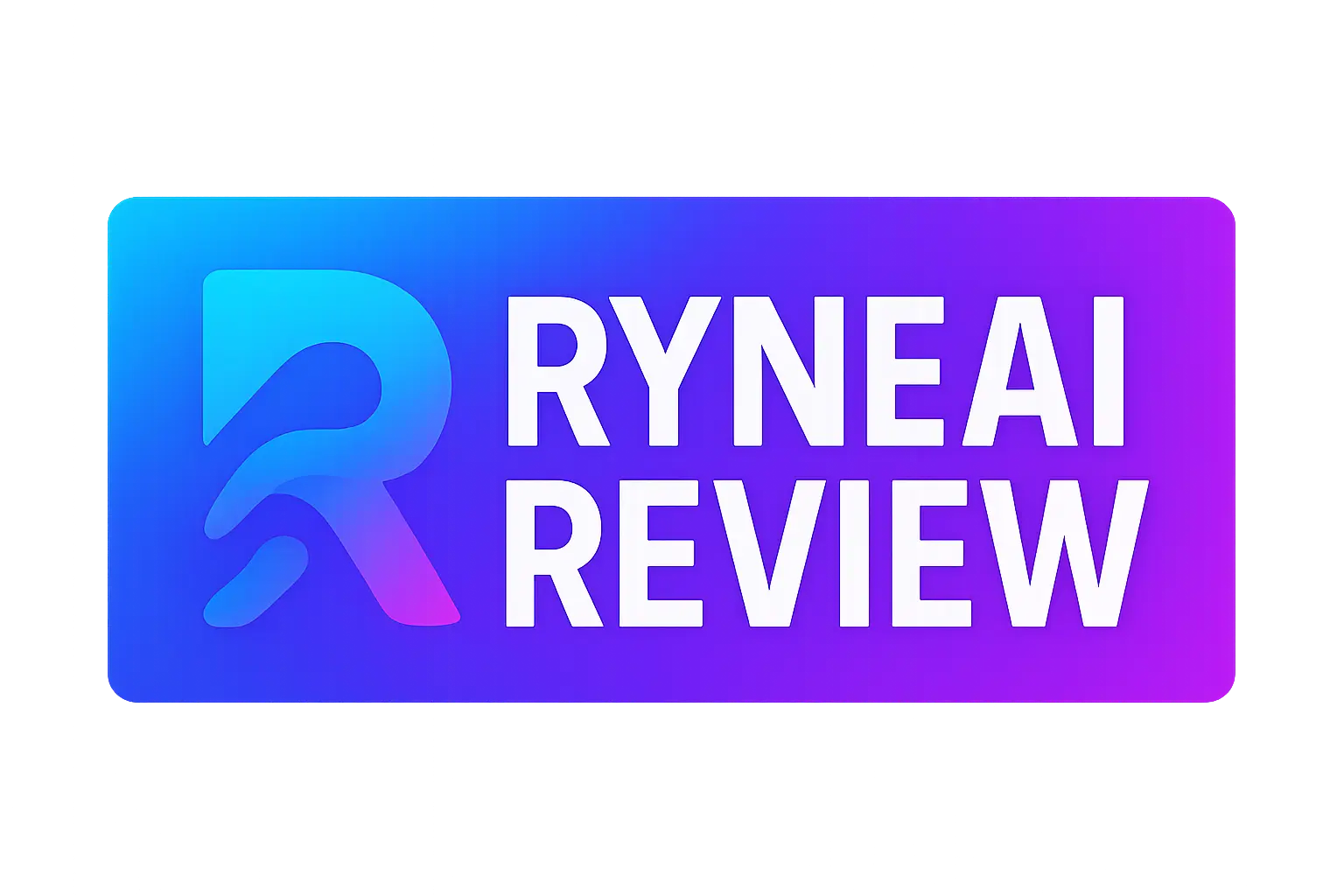
Biomedical researchers face tough choices about using Ryne AI and its ethical considerations in their work. Ryne AI has transformed medical research by speeding up drug discovery by 60% compared to traditional methods.
This blog will explore how Ryne AI balances innovation with responsibility in healthcare research while addressing key ethical challenges like bias and privacy. Ready for a clear-eyed look at AI’s role in tomorrow’s medicine?
Key Takeaways
- Ryne AI speeds up drug discovery by 60% and can cut drug development time from 10-15 years to about half that time.
- AI systems can process millions of data points quickly, finding connections between genes, proteins, and disease markers that humans might miss.
- Algorithmic bias is a major concern, as AI trained mostly on white male patient data may fail to diagnose conditions accurately in women or people of color.
- Many research centers now form special ethics boards that review AI projects before they start to ensure patient protection.
- The partnership between AI developers and bioethicists leads to safer systems that respect patient rights while advancing science.
Role of Ryne AI in Biomedical Research
Ryne AI transforms biomedical research by spotting patterns in massive health datasets that human eyes might miss. This smart tech cuts drug development time from years to months, saving both money and lives in the process.
Enhancing data analysis and interpretation
Ryne AI transforms how scientists handle massive biomedical datasets. This technology spots patterns humans might miss, cutting research time from months to days. Labs using AI tools can process millions of data points quickly, finding connections between genes, proteins, and disease markers.
The speed boost matters most in urgent health crises when fast answers save lives.
The right AI tools don’t just crunch numbers, they help us ask better questions about human health.
Data interpretation gets sharper with machine learning algorithms that improve over time. These systems flag odd results and suggest new testing paths based on past research. Medical teams gain deeper insights without needing to be data experts themselves.
The real magic happens when AI handles routine analysis tasks, freeing up researchers to think creatively about what the results actually mean for patients.
Accelerating drug discovery and development
Beyond data analysis, Ryne AI speeds up the drug discovery process in major ways. Traditional drug development takes 10-15 years and costs billions, but AI cuts this time in half. Drug companies now use machine learning to scan millions of chemical compounds in days instead of years.
This quick screening helps scientists find promising treatments for diseases faster than ever before.
AI also predicts how drugs will work in the human body without extensive lab testing. This means fewer failed clinical trials and more successful medications reaching patients. For example, during COVID-19, AI systems identified existing drugs that might fight the virus in just weeks.
The technology spots patterns humans might miss and creates new drug designs based on what works best. This partnership between AI tools and human researchers brings life-saving treatments to people who need them much sooner.
Ryne AI’s Role in the Future of Technology
Ryne AI stands at the forefront of technology’s next wave, transforming how we approach complex problems in medicine and science. This cutting-edge AI system processes vast amounts of biomedical data in minutes rather than months, spotting patterns human researchers might miss. By leveraging advanced algorithms and machine learning techniques, Ryne AI enhances the research process, facilitating discoveries that were previously unimaginable. Researchers across various fields are increasingly focusing on unlocking Ryne AI for research, as it offers unprecedented insights and accelerates the path from hypothesis to actionable results. The potential applications span drug discovery, personalized medicine, and genomics, ultimately leading to improved patient outcomes.
Labs across the country now use Ryne AI to speed up drug testing, predict treatment outcomes, and analyze genetic information with greater accuracy than ever before. The system works alongside human experts rather than replacing them, creating a partnership that combines machine efficiency with human insight.
Looking ahead, Ryne AI will likely reshape how we tackle major health challenges like cancer and rare diseases. Its ability to learn from each analysis makes it smarter over time, potentially leading to breakthroughs we can’t yet imagine.
The technology also points to a future where medical treatments become more personalized based on individual genetic profiles and health histories. This shift toward AI-assisted healthcare raises important ethical questions about how these powerful tools should be used responsibly.
Let’s explore these ethical implications in more detail.
Ethical Implications of Using Ryne AI
Ryne AI brings powerful tools to medical research, but we must ask tough questions about who benefits from these systems. The rise of AI in healthcare forces us to face issues of data fairness, patient privacy, and whether machines should make life-changing medical decisions.
Addressing algorithmic bias in research outcomes
Algorithmic bias poses a major threat to fair biomedical research. AI systems often reflect the prejudices hidden in their training data, leading to skewed results that might harm certain groups.
For example, medical AI trained mostly on data from white male patients may fail to diagnose conditions accurately in women or people of color. Research teams must check their data sets for these hidden patterns before feeding information to Ryne AI or similar tools.
This problem demands both technical fixes and cultural awareness among scientists who might not spot these issues without careful review.
The fight against bias requires clear rules and constant testing. Teams should run their AI systems through tests with diverse data to spot problems early. Many research groups now include ethics experts who help spot potential bias before it affects results.
The impact of biased algorithms goes beyond bad science, it can lead to real harm in patient care when treatments work for some groups but not others. Medical journals now often ask for proof that AI tools used in studies have been checked for bias, making this step a basic part of good research practice.
Ensuring transparency and accountability in AI systems
Transparency in AI systems means making the “black box” clear for all to see. Medical researchers must know how Ryne AI makes decisions about patient data or drug compounds. This clarity builds trust.
Companies should share how their AI works, what data it uses, and how it reaches conclusions. Open access to this info helps spot errors before they harm patients. Many experts now push for “explainable AI” in healthcare, where systems can show their reasoning in plain language.
Accountability creates a chain of responsibility for AI actions. Who answers when Ryne AI makes a mistake in analyzing cancer cells? Clear rules must exist about who’s liable. This might include the developers, the hospital using the system, or both.
Regular audits of AI systems can catch bias or errors early. Some medical centers now require ethics boards to review all AI tools before they touch patient care. These steps protect people while still letting research move forward with cutting-edge AI technology.
Balancing Innovation and Ethical Responsibility

Finding the sweet spot between AI progress and moral duty requires clear rules for everyone involved. We need both tech experts and ethics specialists at the table to create AI systems that help medical research without causing harm.
Developing ethical frameworks for AI in biomedical research
Creating rules for AI in medical research isn’t just smart, it’s vital. Scientists and ethics experts must work together to build clear guidelines that protect patients while allowing progress.
These frameworks need to address data privacy, bias in algorithms, and how AI makes decisions about human health. Many research centers now form special ethics boards that review AI projects before they start.
The best ethical frameworks don’t just sit on paper. They include regular testing of AI systems, open sharing of methods, and ways for patients to understand how their data helps research.
Groups like the American Psychological Association have started offering specific guidance for using AI in healthcare settings. The goal isn’t to slow down innovation but to make sure AI helps all patients equally and respects their rights to privacy and informed consent.
Promoting collaboration between AI developers and bioethicists
AI developers and bioethicists must work together to build better medical tools. This partnership helps spot problems before they happen. Teams at major research centers now hold regular meetings where tech experts and ethics scholars share ideas.
The results speak for themselves: safer AI systems that respect patient rights while still pushing science forward.
Building bridges between these fields requires clear communication and mutual respect. Bioethicists bring vital insights about patient dignity and research fairness that shape how AI tools should work.
Developers contribute technical knowledge about what’s possible and what safeguards can be built into systems. Some hospitals have created ethics boards that review all AI projects before they start.
This team approach leads to more thoughtful innovation that balances progress with protection. The challenge now lies in balancing innovation with ethical responsibility through proper frameworks.
Conclusion
Ryne AI stands at a crossroads of progress and responsibility in medical research. We must tackle bias, privacy concerns, and data security head-on while pushing science forward. Research teams and ethics experts need to work together on clear rules that protect patients without slowing down breakthroughs.
The future looks bright if we balance AI power with strong ethical frameworks in healthcare. Our choices today about these digital tools will shape medicine for generations to come.
For a deeper dive into how Ryne AI is shaping the future of biomedical innovation, check out our detailed article here. The article also explores various case studies demonstrating the transformative impact of Ryne AI on research methodologies and clinical applications. Additionally, it highlights ryne ai user experiences and feedback, showcasing how these insights are influencing ongoing developments and enhancements within the platform. Engaging with real-world applications further illustrates the potential of Ryne AI to revolutionize the biomedical field.
FAQs
1. What is Ryne AI and how does it help in biomedical research?
Ryne AI is a cutting-edge artificial intelligence system that helps doctors make better medical diagnoses. It uses deep learning to analyze medical data and supports clinical decision-making in healthcare settings.
2. What ethical issues come up when using AI in healthcare?
The main ethical concerns include medical privacy, patient data protection, and the risks of AI making wrong choices. We must balance the benefits of AI with ethical principles to protect patients.
3. How does Ryne AI handle mental health applications?
Ryne AI works with mental health professionals to offer personalized support through telehealth services. It helps analyze patient data while following strict ethical guidelines for mental health care.
4. What safety measures are in place for responsible AI use in medicine?
The artificial intelligence act and ethics frameworks guide the safe use of AI in medicine. Healthcare providers must follow these rules and keep human oversight in all AI-assisted decisions.
5. Can Ryne AI replace human doctors?
No, Ryne AI is a tool to support doctors, not replace them. It helps with workflow and decision support while leaving final choices to trained medical professionals.
6. What future developments can we expect from Ryne AI in healthcare?
Ryne AI is expanding into new areas like mammography and psychiatric care. The system keeps learning and improving through artificial intelligence in healthcare, always following ethical AI principles.


